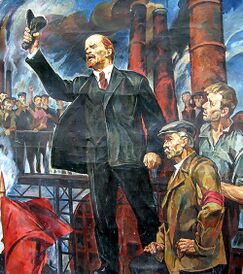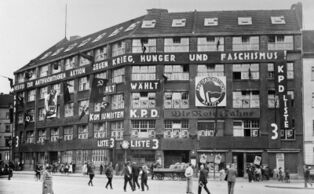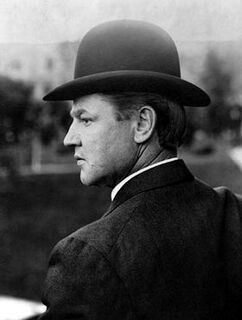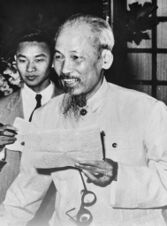Leftism
Left-wing politics, also known as leftism, is a broad grouping of ideological tendencies which seek to alter and advance past the given socio-economic and political status quo in favor of a more egalitarian arrangement. In a modern context, leftist politics centers around the abolition of capitalism in favor of socialism and communism. Modern leftists also oppose the ideological forces in support of capitalism, including liberalism and fascism.
Common left-wing tendencies include Marxism, anarchism, reformist or democratic socialism, and the various sub-groupings in those trends.
Etymology
The terms left-wing and leftism are derived from the French Revolution, when the more progressive, egalitarian political factions were seated on the left-side of the assembly whereas the reactionary factions sat on the right-wing.[1]
Tendencies
This section needs expansion. You can help by adding to it. (April 2024) |
Marxism
Leninism
Marxism–Leninism
Maoism
Anarchism
Reformist
Democratic socialism
Issues
State verses anarchy
A common point of division between leftists is towards the question of a revolutionary state. Most Marxists, particularly Marxist–Leninists and Maoists, argue it is necessary to create a revolutionary dictatorship of the proletariat following the revolution to maintain the gains of the working class, fight class enemies, etc.[2] Anarchists and other libertarian socialists on the other hand believe that creating a state in any form, socialist or not, will lead to the leaders of that state growing as corrupt as the bourgeois government preceding it, which will reproduce capitalist society. Therefore, from an anarchist perspective, statelessness is the most liberative form of political organization.[3]
Revolution verses reformism
This section is empty. You can help by adding to it. |
Vanguardism verses spontaneity
This section is empty. You can help by adding to it. |
Markets verses planning
In modern and historical leftist discourse, a question exists over how to organize a socialist economy. Tendencies like democratic socialism, Titoism, market anarchism, and Dengismhave argued that markets are needed in order to develop the productive forces and provide a superior mode of distribution over a planned economy, which they perceive as ineffective and bureaucratic. On the contrary, socialist advocates of a planned economy argue that markets fundamentally reproduce capitalist relations, generate the same periods of economic crisis due to their inability to be rationally planned, and ultimately create a new bourgeois class which will eliminate socialism and restore capitalism as a whole once empowered.[4] The exact form of a planned economy also differs among different tendencies; anarchists and other libertarian socialists wanting a decentralized and communal-based form of planning whereas Marxists–Leninists and others wanting centralized economic planning.
See also
References
- ↑ "left-wing" Wiktionary
- ↑ "Anarchism" The Espresso Stalinist
- ↑ "Anarchism" (In Russian) Great Soviet Encyclopedia
- ↑ "Yugoslav Revisionism" The Espresso Stalinist
- Featured articles
- Pages using multiple image with auto scaled images
- Articles to be expanded from April 2024
- Articles with invalid date parameter in template
- All articles to be expanded
- Articles using small message boxes
- All articles with empty sections
- Articles with hatnote templates targeting a nonexistent page
- All stub articles
- Stubs
- Leftism







